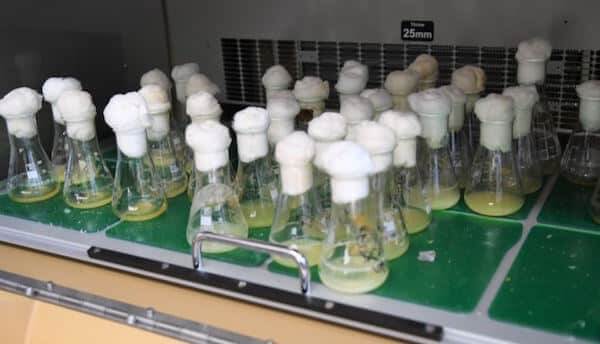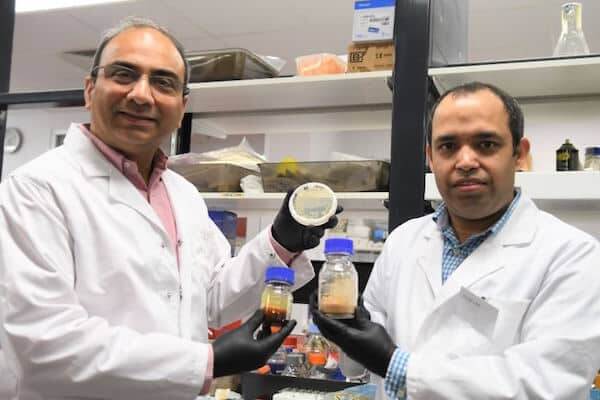After sojourns in scientific research in India, the UK, US, and now in Australia, Flinders University’s Professor Munish Puri has led pathbreaking research which promises to transform the way we tap the ocean’s resources towards creating a sustainable way of life.
His latest paper on extracting value from sustainable algae oils, in collaboration with Adarsha Gupta, Max JH Worthington, Harshal D Patel, Martin R Johnston, and Justin M Chalker promises to provide sustainable solutions across a host of sectors and pave the way towards a more sustainable economy.
“Single cell oils can be used for producing biofuels, nutraceuticals, and different formulations of nutraceuticals helping people look younger, fitter and being more energetic,” Puri told Indian Link. “The societal focus is shifting towards increased consciousness of being fit and healthy and consuming [things like] superfoods.”
There is also a move towards shifting from animal sources of food to more sustainable alternatives, he noted, towards which his research had something significant to offer.
“A lot of energy and resources go into producing traditional plant-based crops. Also, in terms of animal farming, not only does it require a lot of resources, but it is highly damaging for the environment, as animals such as cattle and sheep contribute heavily towards global warming by producing methane,” he stated.
Puri’s research journey began in industrial biotechnology in India, where he obtained his PhD. He followed it up with his postdoctoral research at the University of Oxford and a stint at MIT in the US.
After working for a number of years at Australia’s Deakin University, Puri is now the Deputy Director at the Centre for Marine Bioproducts Development at Flinders University, Adelaide.
His research aims to replace traditional sources of food and nutrition by “sourcing oils through microbes from the marine habitat” and the fact that Australia has a very large coastline, vast marine resources, and some of the best microbial diversity made the prospects really promising.
READ MORE: Dr Padmanabhan and team develop mathematical model to predict vaccine efficacy

“The best part is that we have the technology and the knowhow of screening these microbes and growing them in our lab setups.
“The [lab] research that we conducted on these microbes, took us more than ten years, in refining the techniques and processes,” he said.
Puri also mentioned it was pleasing that, after all these years of research, it has been revealed these micro-organisms could provide sustainable source of energy.
“These micro-organisms displayed profiles which were similar to animal and plant sourced fats — meaning that they could give us a very similar type of fat such as traditional animal or plant sources, thereby reducing our reliance on them [going forward].”
One of the major impacts of this research is that these oils could provide a major resource for producing animal-free meat, which was “one of the most important impacts” of this research.

“We hope to provide specific oil profiles, which will cater to meeting the nutritional needs of all age groups — from infant nutritional supplements to adults and seniors nutrition, across overall health, gut health, neurological health, etc.
“As of now the reliance for these supplements is on fish sources, which we now have an alternative to, in the form of the sustainable source that we have generated.”
Since moving to Australia in 2004, the academic has seen interest “grow enormously” in this research from the industry and from the medical sector as well.
“The government has started supporting industry integrated projects on advanced manufacturing and cell manufacturing. There is a realisation that there is a need to develop sustainable sources of energy in Australia now, unlike in the past,” he explained.
“These organisms are heterotrophic in nature, meaning we do not require large chunks of land for cultivating them. They can be cultivated the way we brew beer or produce wine or for that matter, the way we produce antibiotics. I won’t be surprised if in few years down the line, we have these microbes being used to generate biofuels.”
With Puri’s research team now looking for opportunities of research commercialisation and adoption by industry and the government, there is great hope that their decade long work might be on the cusp of providing a sustainable alternative to how we meet out food and nutritional needs.
READ MORE: PMP Exam Mentor: An app for project management aspirants





